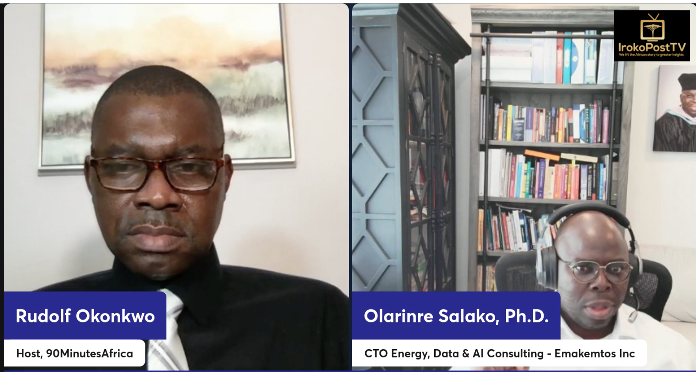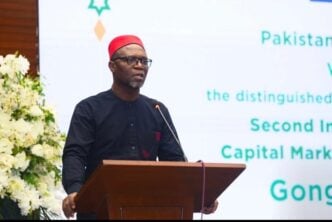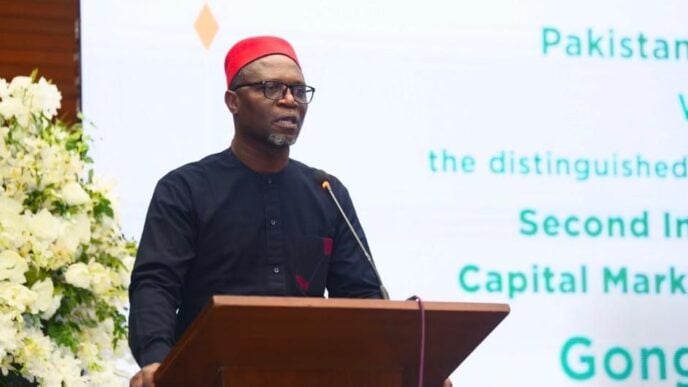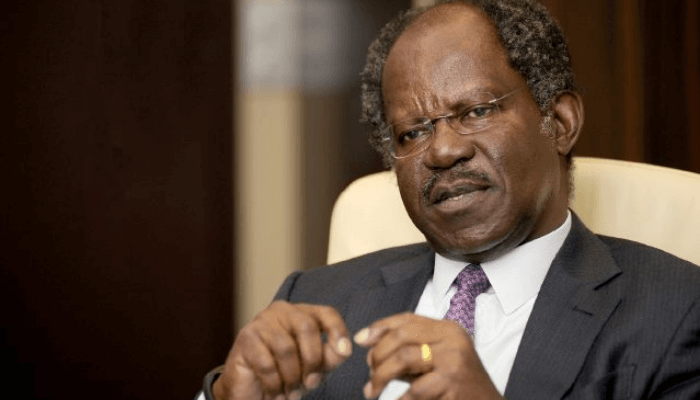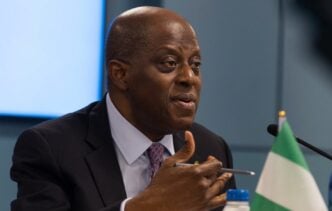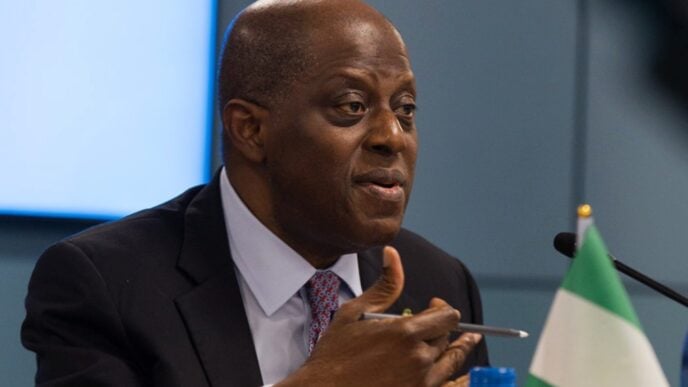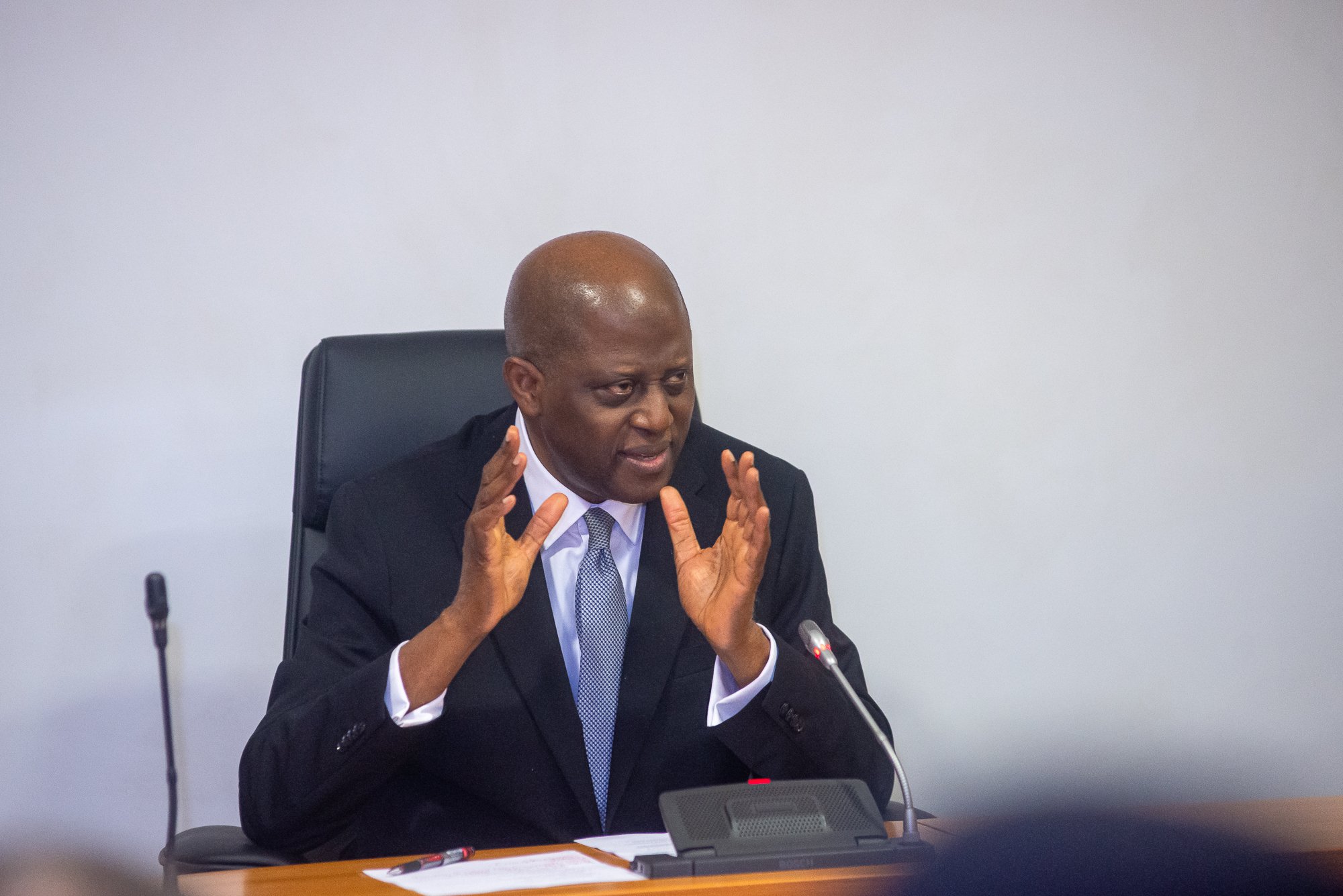Olarinre Salako, a United States-based energy consultant, says President Bola Tinubu’s economic policies — particularly the removal of subsidy and the floating of the naira — have driven 30 million Nigerians into poverty within his first year in office.
Speaking during an interview with Rudolf Okonkwo on 90MinutesAfrica, Salako said the president is more focused on increasing revenue than cushioning the impact of his policies on the lives of Nigerians.
The expert criticised the president’s handling of key economic reforms, noting that the policies have deepened poverty across the country.
“Tinubu was well aware of the possible impacts of petrol subsidy removal, but he didn’t care,” he said.
Advertisement
“He just wanted the money, perhaps to do the Lagos-Calabar coastal highway or any other thing that he wanted to have as his signature project. But poor Nigerians are suffering. More Nigerians are being put into poverty.
“The income of the middle class has been eroded. So something tangible has to be done to salvage the situation.”
Salako said energy subsidies are an essential part of government policy designed to protect citizens’ livelihoods — “a practice upheld even in the most liberal capitalist nations”.
Advertisement
The energy expert said Nigeria’s biggest challenge is that many people in government take office without carefully considering the complex problems the country faces.
“Thirty million Nigerians were thrown into poverty within one year of the Tinubu presidency because of his two major policies of floating the naira and subsidy removal,” Salako said.
“A government should not do things that will make people poorer. They should do things systematically by considering the possible impacts of what they want to do and how to minimize them.”
On the government’s conditional cash transfer programme, through which Tinubu said about N330 billion has been disbursed to 70 million households, Salako described it as another case of “misplaced priorities, poor planning, or outright stealing of public resources”.
Advertisement
He questioned how the government identified the households in a country that lacks any comprehensive database of citizens.
‘NIGERIA’S ENERGY SECTOR LACKS TECHNICAL EXPERTISE’
On the state of Nigeria’s energy sector, the expert lamented the continued failure of the nation’s refineries despite the amount of money spent on their rehabilitation.
Salako said there is no justification for why the refineries should remain dormant while older ones in other countries still function at over 90 percent capacity.
Advertisement
“I don’t understand why our refineries are not working. Some people have said that they should sell it, but I don’t think they should be sold,” the expert said.
“I believe that they should work. If we can’t get refineries to work and help our country, then why do we even have a country?
Advertisement
“All other OPEC countries have functional refineries except Nigeria. The worst we can do is give the refineries to an operator and let the government retain shares.”
He criticised the lack of technical expertise in energy-related ministries, noting that none of the key ministers overseeing the sector has a background in engineering or energy.
Advertisement
“Of the four people in charge of our energy-related ministries in Nigeria, one is a biologist, two are accountants, and one is a lawyer. Obviously, none of them has the technical capacity, but if they have the political will, they can hire competent technical people to assist them,” he added.
Salako called on the government to tap into the expertise of Nigerian professionals abroad, saying many of them are already contributing significantly to the development of other countries.
Advertisement
